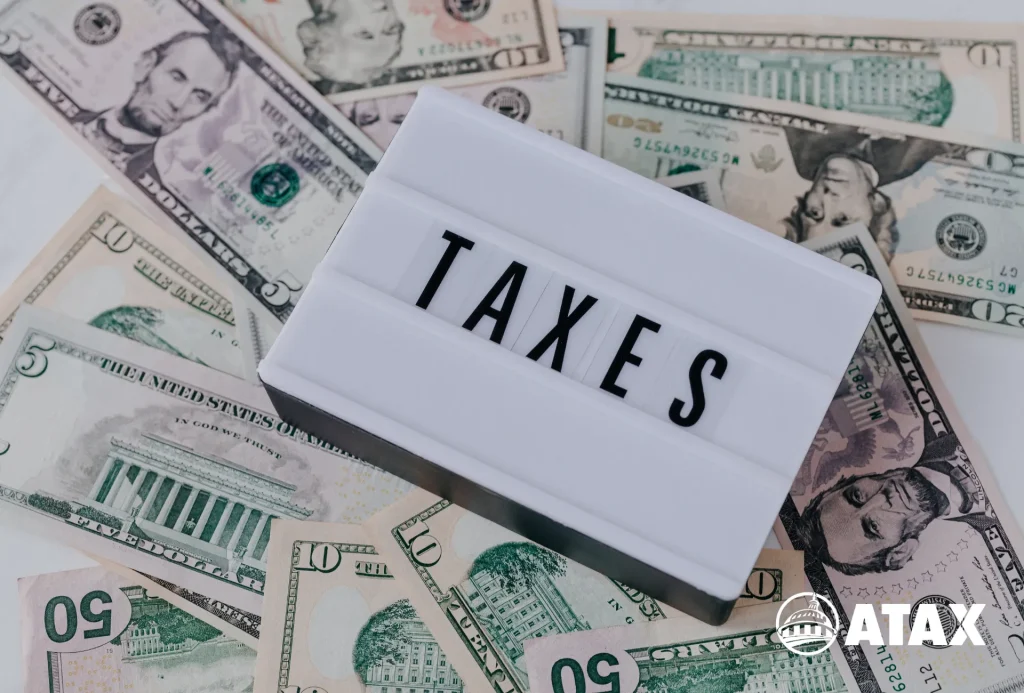Taxes
If you need to access a tax professional’s insight, turn to ATAX for reliable tax advice and federal income tax return services.
How Much Money Do You Have to Make to File Taxes?
Everyone with an income is required to file their taxes for the IRS. Filing a tax return seems like a daunting task to do alone, but once you break it down through a professional lens, you’ll have less trouble completing it.
So, how much money do you have to make to file taxes in 2020? The answer involves an in-depth look at everything from earned income to your filing status.
When Do I Need To File My Taxes?
Every year, you’re required to file tax information. During the year, you need to collect all taxable activity by the annual due date. Depending on how you organize your finances, you may file for a calendar or fiscal year.
Calendar Year vs. Fiscal Year
For people who pay based on the calendar year, they must file on the following April 15th. For example, people had to pay their 2019 tax (counting from January 1st to December 30th) on or before April 15th, 2020.
Other companies pay taxes based on a tax year that doesn’t begin in January. The fiscal year may vary between companies, so the payment date is four months and fifteen days after the fiscal year ends.
How to File a Tax Return
When you are filing your tax return, you must follow the following set of steps:
- Gather up your tax documents, including W2s from employers, 1099s, and statements for investment income or mortgage interest.
- Decide between standard deduction or itemizing for lowering your taxable income.
- Choose a filing status to determine how much to pay.
- You must file your information with a specialist or online.
Determining Your Income
It’s crucial to know about the different types of income before your tax due date. Tax-exempt income includes worker’s compensation, child support, and veteran’s benefits. Taxable income includes business income, unemployment benefits, and capital gains.
If you have a taxable amount of social security benefits, you can file a return. If you want to lower the amount you pay, you’ll need to find out your basic standard deduction.
Unearned Income
Unearned income measures investment-type income. You can use this to add to your total tax costs. The IRS typically equates it with taxable interest, ordinary dividends, and capital gain distribution.
Federal Income Tax Return
If you need to file a federal income tax return, you’ll need your status for filing, gross income, and age. When you owe taxes, all of these factors matter. When you receive a paycheck, the employer pays the government with a set income tax withheld. If too much is withheld, you’ll get a tax refund. If not enough is withheld, you’ll have another tax bill.
Self Employment Income
If you’re self-employed, you need to determine the self-employment tax rate of your earned income. You’re required to pay a self-employment tax if your self-employment income is over $400.
The self-employment tax rate is about 15.3%, with 12.4% covering social security and 2.9% covering a health savings account, regardless of age. The health and social security tax rate is double the rate of income via employer coverage.
What is the Minimum Income for Tax Filing in 2019?
The minimum income for filing your taxes in 2019 is about $12,000 for single taxpayers. While other outside factors can increase it, this is a general rule to follow.
Determining Your Filing Status
If you’re wondering, “how much do you have to make to owe taxes,” you must first figure out your filing status. This status allows you to determine your filing requirements for standard deductions, credit eligibility, and the correct taxes you owe.
Your tax situation may change as you go through life, such as age, so be sure to carefully choose from one of the available filing statuses. Marital status is a staple factor for determining your filing status.
Social security benefits can also be included in this measurement and deduct from how much money you have to make when completing tax work.
Single
This option applies if the filer is divorced or legally separated. If you’re age 65 or older, the minimum for your tax return goes up.
Married
Married couples have two options when they need to file a tax return on form 1040. If you qualify as Married Filing Jointly, you and your spouse must combine your income to determine how much you have to pay in taxes.
You and your spouse may choose to file as Married Filing Separately. This tax situation option may provide tax benefits in certain circumstances and a higher deduction.
Head of Household
To qualify, you have to be unmarried by the last day of the tax year, pay more than half the cost of maintaining the house over a year while living half a year with a relative claimed as a dependent.
Do You Have to File Taxes If You Made Less than $5,000?
Typically, if a filer files less than $5,000 per year, they don’t need to do any filing for the IRS. Your employment status can also be used to determine if you’re making less than $5,000.
Do You Have to File Taxes If You Don’t Make A Lot of Money?
It’s acceptable to skip filing a return if you don’t make much money throughout the year. It’s also acceptable to send a return that states you’re making below the minimum income.
How Much Money Do You Have to Make to File a Tax Return?
You should make at least $12,400 to fill out tax returns, although this number may change based on age and filing status.
Determining Your Gross Income
One of the factors used to determine if you’re required to file a federal tax return is gross income or the sum of all money earned. You can subtract any standard deduction from your income.
If you are self-employed, a standard deduction includes business expenses.
Unearned Income
When gaining unearned income not obtained by business or trade, you must add this passive income to your final gross outcome. Some examples include gift money, financial prizes, or interest in a savings account.
Earned Income
Earned income should account for most of the final gross income and can be applied to any filing status. Some examples of earned income include wages, salaries, net earnings, and other forms of employee payment.
Calculating the Minimum Income to File Taxes in 2020
Now, take your gross income and filing status to determine the minimum amount needed to pay taxes.
Single
- Not 65 or older: The minimum income amount needed for filing taxes in 2020 should be $12,400.
- 65 or older: It should be over $14,050 to file a tax return.
- If your unearned income was more than $1,050, you must file a return.
Married
- Filing Jointly: make at least $24,400 if you’re both under age 65 and $27,00 if 65 or older.
- When filing separately, you only need a gross income of $5 to file returns.
Head of Household
- If you’re under age 65, you need to make $18,250,
- If you’re age 65 or older, you must make $20,000. Having a dependent child may also affect the amount of your income and return.
If your income is less than these minimums, you don’t need to file a return.
Factors that also apply for finding your gross income include tax deduction and tax credits. This includes charitable deductions, earned income tax credit, earned income tax credit, and business deductions.
How Long Do I Wait to Get a Refund?
If you need to file with paper returns, you will typically wait six to eight weeks after the IRS received your forms. Individuals who file electronically will receive access to the tax refund in about three weeks.
Conclusion
Once you record the information you need for requesting a tax return, even the unearned income, you can use it for the next tax year. By calculating the taxable income you earn, you can pay and apply for tax returns every year and apply for tax credits if possible.
If you have any questions or need tax advice, talk to a tax professional at ATAX Inc. (all rights reserved) about filing your personal taxes, bookkeeping, payroll, business taxes, and incorporation in the United States.
Visit our related articles on our website or call us at 1(866)999-2829 for questions about requirements for self-employed individuals, a tax search term, or general tax advice. Feel free to contact us on our website or visit one of our offices, especially if you haven’t yet filed your taxes.







